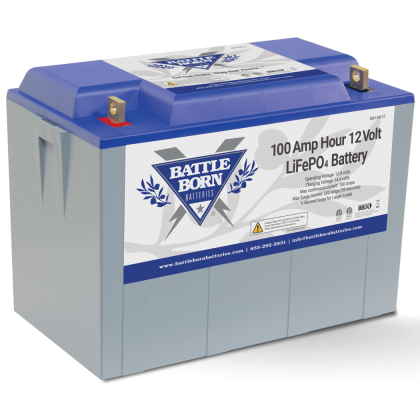 Lithium batteries have become an
incredibly popular energy source choice for a wide range of applications, from consumer electronics to powering
boats. Their high energy density, long lifespan, and fast charging capabilities make them a preferred choice for
many industries, including the marine industry. In this article, we will explore the benefits and performance of
lithium batteries in marine applications, specifically focusing on marine use, lifespan, battery type
performance comparisons with lead acid batteries, cranking power, weight savings, fast charging benefits, and
the impacts of cold weather.
Lithium batteries have become an
incredibly popular energy source choice for a wide range of applications, from consumer electronics to powering
boats. Their high energy density, long lifespan, and fast charging capabilities make them a preferred choice for
many industries, including the marine industry. In this article, we will explore the benefits and performance of
lithium batteries in marine applications, specifically focusing on marine use, lifespan, battery type
performance comparisons with lead acid batteries, cranking power, weight savings, fast charging benefits, and
the impacts of cold weather.
Understanding the Science Behind Lithium Batteries
Lithium-ion battery technology is based on the principle of charge transfer through lithium ions. When a lithium
battery discharges, lithium ions flow from the negative electrode (anode) to the positive electrode (cathode)
through an electrolyte, creating an electrical current. The process is reversed during charging, and lithium
ions return to the negative electrode.
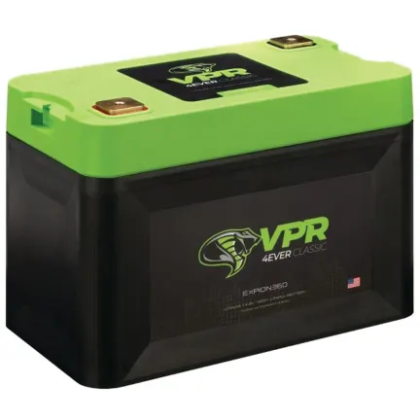 This exchange of lithium ions
between the anode and cathode in the electrolyte, made possible by lithium's small atomic weight and radius,
enables energy storage in the battery and the release of electrical energy without any memory effect. This type
of rechargeable battery, recognized by the 2019 Nobel Prize in Chemistry, is obviously attractive to boaters
since there is no lasting damage from a deep discharge of the battery pack, also known as a "dead
battery" condition.
This exchange of lithium ions
between the anode and cathode in the electrolyte, made possible by lithium's small atomic weight and radius,
enables energy storage in the battery and the release of electrical energy without any memory effect. This type
of rechargeable battery, recognized by the 2019 Nobel Prize in Chemistry, is obviously attractive to boaters
since there is no lasting damage from a deep discharge of the battery pack, also known as a "dead
battery" condition.
Best Lithium Batteries for Deep Cycle Marine Use
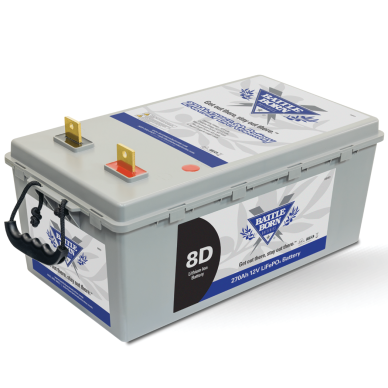 Now that we know how they work, it's important to clarify which batteries we are referring to when it comes to
the best lithium batteries for boats. While there are MANY types of lithium batteries, what has risen to the top
as the safest option for marine use is the Lithium Iron Phosphate battery, also known as an LFP or, more
commonly, as a LiFePO4 battery. This type of lithium battery is inherently safer due to its thermal and chemical
stability at higher temperatures, making it less prone to thermal runaway reducing the risk of fire or explosion
if it is overcharged.
Now that we know how they work, it's important to clarify which batteries we are referring to when it comes to
the best lithium batteries for boats. While there are MANY types of lithium batteries, what has risen to the top
as the safest option for marine use is the Lithium Iron Phosphate battery, also known as an LFP or, more
commonly, as a LiFePO4 battery. This type of lithium battery is inherently safer due to its thermal and chemical
stability at higher temperatures, making it less prone to thermal runaway reducing the risk of fire or explosion
if it is overcharged.
What also makes LiFePO4
batteries great for boating is they can withstand extended periods of storage with minimal voltage loss - a good
option if you are storing your boat for part of the year. In addition, they have a MUCH longer lifespan than
other types of lithium batteries, typically lasting over 10 years, making them a worthwhile investment (more on
this later) and to top it off, they are maintenance free (assuming you have a proper setup and a good BMS in
place).
Fisheries Supply currently offers LiFePO4 batteries from several manufacturers, including Victron Energy, Battle Born Batteries, Mastervolt, and Xantrex. All these LiFePO4 batteries come with an integrated
BMS (battery management system), which helps ensure the safest battery charging while also protecting them from
common battery failures such as high or low voltage, short circuits, or hot/cold temperature issues.
Fast Charging Benefits of Lithium
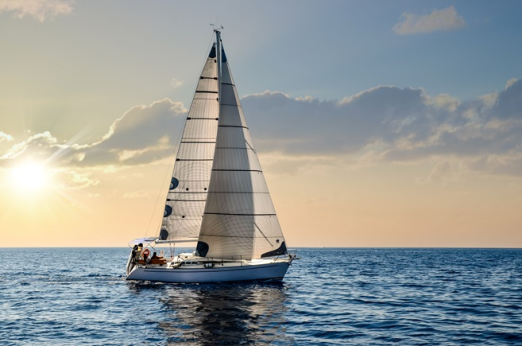 By far, one of the biggest game-changers when installing
LiFePO4 batteries on your boat is having 100% DOD (depth of discharge). This means you can discharge them all
the way down to zero with no noticeable loss in performance (remember that no memory effect?). Discharging most
marine batteries below 50% can harm them and shorten their life cycles. Because of this, most manufacturers
recommend against discharging below 70% on average - so for a 100-amp battery, you're only getting 30 usable
amps if you want to ensure the battery has a long life. But with 100% DOD, you can discharge your LiFePO4
batteries all the way down to zero without any memory effect - meaning you have the full 100 amps at your
disposal.
By far, one of the biggest game-changers when installing
LiFePO4 batteries on your boat is having 100% DOD (depth of discharge). This means you can discharge them all
the way down to zero with no noticeable loss in performance (remember that no memory effect?). Discharging most
marine batteries below 50% can harm them and shorten their life cycles. Because of this, most manufacturers
recommend against discharging below 70% on average - so for a 100-amp battery, you're only getting 30 usable
amps if you want to ensure the battery has a long life. But with 100% DOD, you can discharge your LiFePO4
batteries all the way down to zero without any memory effect - meaning you have the full 100 amps at your
disposal.
Performance Comparison: Lithium vs. Lead Acid Batteries
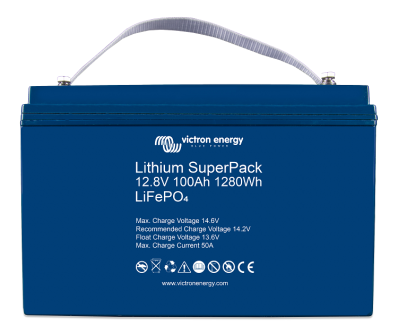 Let's compare that to
a 400AH lead acid battery bank. With this battery bank, you would have approximately 120 usable amp hours before
needing to recharge, but with the same LiFePO4 battery bank, you have 400-amp hours - obviously a huge
difference. In essence, you can install a significantly smaller battery bank because you can utilize all the amp
hours instead of just a small percentage - or you can stay with the same size bank and have over three times the
amp hours available. In addition, with most marine batteries the discharge rate falls off as more amps are
pulled out of the battery - but with lithium, that rate stays the same no matter how discharged the batteries
are - giving you highly consistent power.
Let's compare that to
a 400AH lead acid battery bank. With this battery bank, you would have approximately 120 usable amp hours before
needing to recharge, but with the same LiFePO4 battery bank, you have 400-amp hours - obviously a huge
difference. In essence, you can install a significantly smaller battery bank because you can utilize all the amp
hours instead of just a small percentage - or you can stay with the same size bank and have over three times the
amp hours available. In addition, with most marine batteries the discharge rate falls off as more amps are
pulled out of the battery - but with lithium, that rate stays the same no matter how discharged the batteries
are - giving you highly consistent power.
Another huge benefit is that the time to recharge is greatly reduced. LiFePO4 batteries will normally charge 4-5
times faster than lead acid, and since they don't need to reach 100%, there's no waiting around for that final
5% to finish charging. If you're at anchor - that means less time running the generator - if you need to run it
at all. Many cruisers that have switched (this author included) have found that by adding a large solar array,
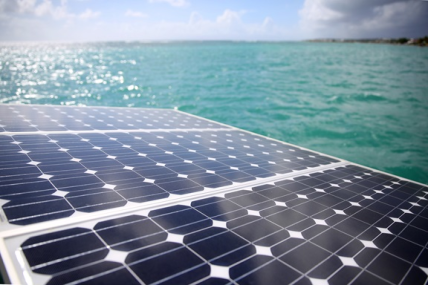 they don't need to start the
generator at all because the solar power provides enough energy to top off the lithium batteries. That means
less noise and less money spent on fuel - a win, no matter how you look at it.
they don't need to start the
generator at all because the solar power provides enough energy to top off the lithium batteries. That means
less noise and less money spent on fuel - a win, no matter how you look at it.
Lifespan of Lithium Batteries in Marine Applications
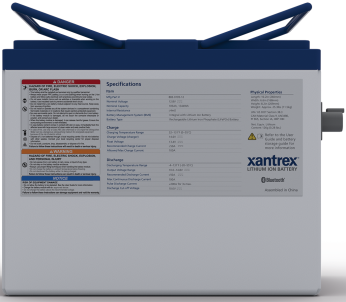 Yet another benefit of
switching to LiFePO4 batteries is their lifespan. Under hard use, most Lead Acid, Gel, or AGM batteries will
give you 3-5 good years, or about 300-600 life cycles if used as recommended by the manufacturer. In comparison,
if used as recommended, LiFePO4 batteries are good for 3000-5000 life cycles - which equates to approximately 10
years, a huge difference in battery capacity and increased lifespan. So, while it's true that these batteries
are significantly more expensive, if you look at the lifetime usage the price becomes much more palatable.
Yet another benefit of
switching to LiFePO4 batteries is their lifespan. Under hard use, most Lead Acid, Gel, or AGM batteries will
give you 3-5 good years, or about 300-600 life cycles if used as recommended by the manufacturer. In comparison,
if used as recommended, LiFePO4 batteries are good for 3000-5000 life cycles - which equates to approximately 10
years, a huge difference in battery capacity and increased lifespan. So, while it's true that these batteries
are significantly more expensive, if you look at the lifetime usage the price becomes much more palatable.
Lithium Battery Weight Savings
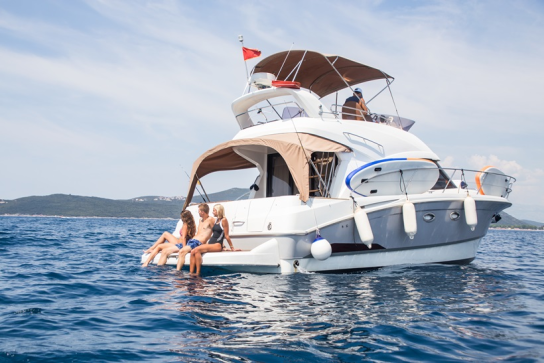 In addition to all the
benefits mentioned so far - LiFePO4 batteries weigh considerably less than Lead Acid, AGM, or Gel batteries.
This benefit has to do with higher energy density - which is significant in lithium batteries. This means they
can store more energy in a smaller (and lighter) footprint. So not only do they weigh less - they take up less
room than other types of batteries. In most cases, you should be able to replace your current battery bank in
about ½ the space as well as about ½ the weight - and we all know a lighter boat goes faster, and everyone needs
more space - so another win.
In addition to all the
benefits mentioned so far - LiFePO4 batteries weigh considerably less than Lead Acid, AGM, or Gel batteries.
This benefit has to do with higher energy density - which is significant in lithium batteries. This means they
can store more energy in a smaller (and lighter) footprint. So not only do they weigh less - they take up less
room than other types of batteries. In most cases, you should be able to replace your current battery bank in
about ½ the space as well as about ½ the weight - and we all know a lighter boat goes faster, and everyone needs
more space - so another win.
Can Lithium batteries start boat engines?
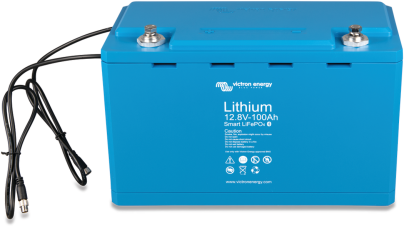 At this point, you might be
asking, "Okay, what's the downside of LiFePO4"?. While these batteries ensure prolonged endurance even
during deep discharge - the one thing they are not as good at is delivering super high CCA's (cold cranking
amps) for jobs like starting your engine, running a windlass, or operating bow thruster. While it IS possible to
use lithium batteries for these jobs, in most cases it is better left to batteries with high CCA's such as Lead
Acid or AGM as some internal BMS's may consider such a large impulse load like that as as short circuit and shut
down the bank. So, if you choose lithium for these jobs, make sure to do your research and get LiFePO4 batteries
with a BMS that can handle the loads you need.
At this point, you might be
asking, "Okay, what's the downside of LiFePO4"?. While these batteries ensure prolonged endurance even
during deep discharge - the one thing they are not as good at is delivering super high CCA's (cold cranking
amps) for jobs like starting your engine, running a windlass, or operating bow thruster. While it IS possible to
use lithium batteries for these jobs, in most cases it is better left to batteries with high CCA's such as Lead
Acid or AGM as some internal BMS's may consider such a large impulse load like that as as short circuit and shut
down the bank. So, if you choose lithium for these jobs, make sure to do your research and get LiFePO4 batteries
with a BMS that can handle the loads you need.
Impacts of cold weather on lithium marine batteries
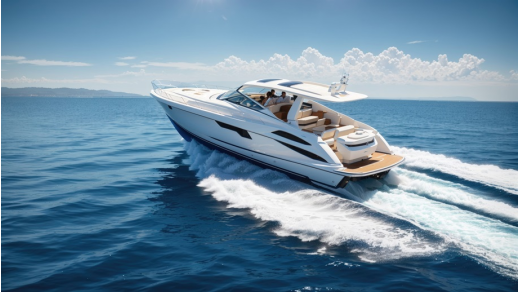 There has been a fair amount
of discussion about the fact that Lithium batteries are not great in low temperatures. To clarify, while lithium
batteries are known to have battery performance and charging issues in extremely cold climates, impacting the
state of charge, the majority of LiFePO4 batteries have an operating range of -4 to 140°F and will charge and
discharge normally if you use them within that range. However, it is important to note that cold weather can
still have an impact on lithium marine batteries, as they are best used at room temperature for stable
performance. While that shouldn't be an issue for most boaters when they are actively cruising, if you live
in an area where you pull your boat out for the winter, you will need to consider how you will keep your lithium
batteries warm enough to ensure they can still function properly with no long-term damage. Some newer LiFePO4
batteries include a built-in heating system that activates during cold weather - so again, do your homework if
you think this issue will affect your needs.
There has been a fair amount
of discussion about the fact that Lithium batteries are not great in low temperatures. To clarify, while lithium
batteries are known to have battery performance and charging issues in extremely cold climates, impacting the
state of charge, the majority of LiFePO4 batteries have an operating range of -4 to 140°F and will charge and
discharge normally if you use them within that range. However, it is important to note that cold weather can
still have an impact on lithium marine batteries, as they are best used at room temperature for stable
performance. While that shouldn't be an issue for most boaters when they are actively cruising, if you live
in an area where you pull your boat out for the winter, you will need to consider how you will keep your lithium
batteries warm enough to ensure they can still function properly with no long-term damage. Some newer LiFePO4
batteries include a built-in heating system that activates during cold weather - so again, do your homework if
you think this issue will affect your needs.
Are Lithium Batteries Better for the Environment?
As previously mentioned, these batteries have a much longer lifespan - meaning they won't have to be replaced as
often, so less batteries in the landfill. They require less energy to produce, so fewer resources are needed to
manufacture them and they have no heavy metals or toxic materials - making them much easier to recycle. Being
more energy efficient, they require a smaller amount of energy to charge - leading to a reduced impact on the
environment. Lastly - they are highly compatible with solar charging, meaning you can use renewable energy to
charge them very efficiently. All in all - they are far better for the environment than Lead Acid, Gel or AGM
batteries - so if you're interested in “going green”, these batteries can be a good (if small) way to reduce
your carbon footprint.
What happens to lithium batteries when they are dead?
When lithium batteries are dead, they should be disposed of properly at designated recycling centers. Lithium
batteries can pose a risk if not handled correctly, so it's important to follow guidelines to prevent
environmental contamination and ensure safety.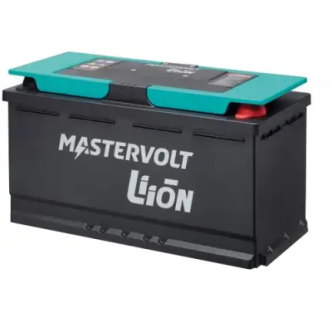
Should I make the switch?
Only you can decide if the benefits we've covered make investing in new LiFePO4 batteries worthwhile. It's
important to consider some potentially hidden costs, which could include ancillary items like your battery
charger or your alternator system setup. Make sure to check if your battery charger is capable of charging
lithium batteries - and that the regulator on your alternator has a specific profile for lithium batteries -
unlikely in both cases if they are older models. In addition, if you currently have a wind generator, you may
need to reconsider how that installation will work. Switching to a lithium battery installation can be a BIG
project - so we highly recommend getting a quote from a qualified installation expert to help you make the final
decision.
We hope you've enjoyed this Navigator and that it's giving you some good information to help you make that
decision. If you have any questions, please don't hesitate to contact our experts at (800) 426-6930.










